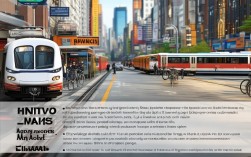一个高质量的雅思作文不是要你死记硬背一个“万能模板”,而是要掌握核心论证逻辑、常用表达和结构框架,这样才能灵活应对不同题目。

下面我将为你提供一个“活用模板”,它由核心结构、万能句式、以及针对不同题目的论证思路三部分组成,你可以根据具体题目,像搭积木一样组合使用。
Part 1: 核心结构框架 (The "Backbone")
如何变化,雅思大作文(Task 2)最稳妥的结构都是四段式:
-
引言段:
- 改写题目,表明背景。
- 明确给出你的立场。
- (可选)简要预告你的分论点。
-
主体段 A:
- 主题句: 清晰陈述本段的核心观点。
- 论证: 解释你的观点为什么成立。
- 举例: 用具体的例子来支撑你的论证(这是高分关键!)。
- 小结: 重申本段观点,并与下一段衔接。
-
主体段 B:
- 主题句: 陈述你的第二个核心观点(可以是优点、缺点,或另一方面的论证)。
- 论证: 解释。
- 举例: 举例。
- 小结: 重申本段观点。
-
结论段:
- 用不同的同义词**重申**你的总体立场。
- 主体段的两个分论点。
- (可选)提出建议、展望未来或指出其深远意义。
Part 2: 万能句式与表达 (The "Building Blocks")
引言段
- 背景引入:
- In the contemporary era, [旅游] has become an increasingly prevalent phenomenon, profoundly influencing various aspects of our society.
(在当代,[旅游]已成为一种日益普遍的现象,深刻影响着我们社会的方方面面。)
- The proliferation of international travel has sparked a wide-ranging debate regarding its merits and demerits.
(国际旅游的激增引发了关于其利弊的广泛辩论。)
- In the contemporary era, [旅游] has become an increasingly prevalent phenomenon, profoundly influencing various aspects of our society.
- 表明立场:
- From my perspective, I am convinced that the benefits of tourism, particularly in terms of economic growth and cultural exchange, far outweigh its drawbacks.
(在我看来,我坚信旅游的好处,尤其是在经济增长和文化交流方面,远远超过了其弊端。)
- While tourism undeniably brings certain economic advantages, I firmly believe that its negative impacts on the environment and local culture are more significant.
(尽管旅游无疑带来了一定的经济优势,但我坚信其对环境和当地文化的负面影响更为显著。)
- From my perspective, I am convinced that the benefits of tourism, particularly in terms of economic growth and cultural exchange, far outweigh its drawbacks.
- 预告分论点:
- This essay will elaborate on the primary economic benefits and the potential cultural harm caused by mass tourism.
(本文将详细阐述大众旅游带来的主要经济效益和潜在的文化危害。)
- This essay will elaborate on the primary economic benefits and the potential cultural harm caused by mass tourism.
主体段
- 主题句:
- The most compelling advantage of tourism lies in its substantial contribution to the economy.
(旅游最有说服力的优势在于它对经济的巨大贡献。)
- However, the unchecked expansion of tourism can give rise to a host of detrimental consequences.
(旅游的 unchecked 扩展会带来一系列有害的后果。)
- The most compelling advantage of tourism lies in its substantial contribution to the economy.
- 论证与举例:
- 经济方面:
- 论证: It generates a myriad of job opportunities, ranging from hotel and restaurant staff to tour guides and transportation providers.
- 举例: For instance, in countries like Thailand and Spain, the tourism sector is a cornerstone of the national economy, accounting for a significant percentage of their GDP and providing livelihoods for millions.
- 文化方面:
- 论证: On the cultural front, tourism serves as a powerful catalyst for fostering mutual understanding and appreciation among diverse societies.
- 举例: When travelers visit historical sites like the Angkor Wat in Cambodia or the Forbidden City in China, they gain firsthand insights into the local heritage, which helps to break down stereotypes and promote global harmony.
- 环境方面:
- 论证: A major downside is the environmental degradation often associated with mass tourism, such as pollution and the depletion of natural resources.
- 举例: The famous beaches in Bali, for example, have suffered from severe water pollution and coral damage due to the influx of tourists and poorly managed infrastructure.
- 社会方面:
- 论证: Furthermore, the character of a place can be eroded as local communities cater to tourist demands, leading to the commercialization of authentic traditions.
- 举例: In some parts of Venice, traditional neighborhoods have been transformed into a vast open-air museum for tourists, pushing local residents out and diluting the city's authentic living culture.
- 经济方面:
结论段
- 重申立场:
- In conclusion, while the allure of travel is undeniable and its economic benefits are substantial, it is imperative to acknowledge and address the profound negative impacts it can inflict.
(尽管旅行的吸引力不可否认,其经济利益也相当可观,但我们必须承认并解决它可能造成的深远负面影响。)
- In conclusion, while the allure of travel is undeniable and its economic benefits are substantial, it is imperative to acknowledge and address the profound negative impacts it can inflict.
- 总结分论点:
- As has been discussed, the double-edged nature of tourism presents a complex challenge, balancing economic prosperity against environmental preservation and cultural integrity.
(如前所述,旅游这把双刃剑带来了一个复杂的挑战,即在经济增长与环境保护、文化完整性之间取得平衡。)
- As has been discussed, the double-edged nature of tourism presents a complex challenge, balancing economic prosperity against environmental preservation and cultural integrity.
- 提出建议/展望:
- Therefore, it is the joint responsibility of governments, businesses, and individuals to adopt sustainable practices to ensure that tourism can be a force for good for generations to come.
(政府、企业和个人共同承担起责任,采取可持续的实践,确保旅游能够成为造福子孙后代的力量。)
- Therefore, it is the joint responsibility of governments, businesses, and individuals to adopt sustainable practices to ensure that tourism can be a force for good for generations to come.
Part 3: 针对不同题型的论证思路
题型一: 双边讨论类** "Some people think that tourism is beneficial, while others believe it has negative effects. Discuss both views and give your own opinion."
- 结构: 主体段A + 主体段B + 你的观点
- 主体段A (正方观点):
- 观点: Tourism is a powerful engine for economic development.
- 论证: Creates jobs, generates foreign exchange, and stimulates infrastructure development.
- 举例: The Maldives' economy is heavily reliant on luxury tourism.
- 主体段B (反方观点):
- 观点: Conversely, unchecked tourism can be destructive.
- 论证: Causes environmental pollution, puts strain on local resources, and can lead to the loss of cultural identity.
- 举例: The overtourism in Barcelona has led to protests from local residents.
- 结论段: 你的观点(通常是“两者兼有,但更倾向某一方”或“需要平衡”)。
题型二: 利弊分析类** "Do the advantages of tourism outweigh its disadvantages?"
- 结构: 你的立场(利大于弊/弊大于利)+ 主体段A (优点) + 主体段B (缺点)
- 如果你的立场是 "利大于弊":
- 主体段A (优点): 重点论述经济、文化、教育等方面的好处。
- 主体段B (缺点): 承认缺点存在,但弱化其严重性,或提出解决方案。"While it is true that mass tourism can cause environmental damage, this issue can be mitigated through stricter regulations and the promotion of eco-tourism."
- 如果你的立场是 "弊大于利":
- 主体段A (缺点): 重点论述环境、社会文化等方面的严重问题。
- 主体段B (优点): 承认经济好处,但强调其短暂性或不可持续性。"Although tourism brings short-term financial gains, the long-term cost to a nation's natural and cultural heritage is often far greater and irreversible."
题型三: 解决方案类** "How can we reduce the negative impacts of tourism?"
- 结构: 主体段A (政府措施) + 主体段B (企业/个人措施)
- 主体段A (政府措施):
- 观点: Governments should play a leading role in regulating the tourism industry.
- 论证/举例: Implementing carrying capacity limits for popular attractions (e.g., Machu Picchu), investing in sustainable public transport, and enforcing strict environmental laws on tour operators.
- 主体段B (企业/个人措施):
- 观点: Both businesses and travelers have a responsibility to promote sustainability.
- 论证/举例: Hotels can adopt green practices like water conservation. Tourists should be encouraged to respect local cultures, minimize their waste, and support local businesses instead of large international chains.
最后的重要提醒:
- 不要生搬硬套: 模板是骨架,你的思想和例子是血肉。











